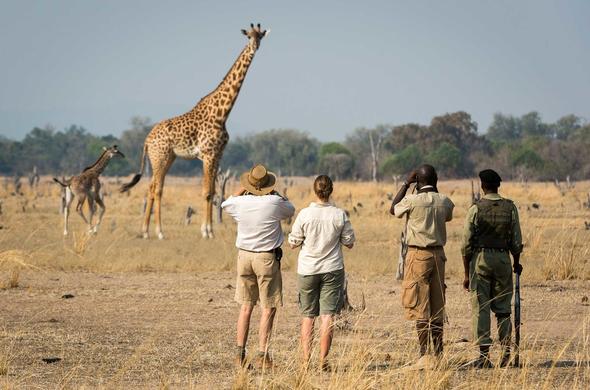Zambia, often referred to as the “Real Africa,” boasts breathtaking landscapes, rich wildlife, and vibrant cultures. Tourism plays a crucial role in the nation’s economy, providing employment, generating income, and promoting sustainable development. Here are ten ways tourism boosts Zambia’s economy.
1. Job Creation
The tourism sector is a significant source of employment in Zambia. It provides jobs directly in hotels, lodges, restaurants, and tour companies, as well as indirectly through suppliers and support services. This job creation is essential for reducing unemployment rates and improving living standards for many Zambians.
2. Foreign Exchange Earnings
Tourism generates substantial foreign exchange for Zambia, contributing significantly to the country’s balance of payments. International tourists spend money on accommodations, food, activities, and souvenirs, bringing in valuable foreign currency that strengthens the economy and enhances the nation’s financial stability.
3. Infrastructure Development
To cater to tourists, Zambia has invested in infrastructure development, including roads, airports, and telecommunications. Improved infrastructure not only benefits the tourism sector but also enhances the quality of life for local communities, facilitating better access to essential services and markets.
4. Conservation and Wildlife Protection
Zambia’s tourism industry heavily relies on its natural resources, particularly its wildlife and national parks. Revenue generated from tourism is often reinvested in conservation efforts, ensuring the protection of endangered species and preserving ecosystems. This not only enhances the tourism appeal but also contributes to environmental sustainability.
5. Cultural Exchange and Community Development
Tourism fosters cultural exchange, allowing visitors to experience Zambian traditions and heritage. Local communities benefit from this interaction, as cultural tourism initiatives provide opportunities for artisans and performers to showcase their work, promoting local crafts and traditions while generating income.
6. Support for Local Businesses
Tourism stimulates local economies by creating demand for goods and services. Local markets, artisans, and farmers benefit as tourists seek authentic Zambian products. This support helps small businesses thrive, contributing to economic diversity and resilience.
7. Investment Opportunities
A thriving tourism industry attracts both domestic and international investors. Investment in hotels, resorts, and tourist attractions not only creates jobs but also contributes to economic growth by increasing the overall capacity to accommodate tourists, leading to higher visitor numbers.
8. Promotion of Sustainable Practices
Zambia’s tourism sector increasingly emphasizes sustainability, with eco-friendly lodges and responsible tourism practices gaining popularity. These initiatives promote environmental stewardship and encourage tourists to engage in conservation efforts, ultimately benefiting the local economy and ecosystem.
9. Regional Economic Development
Tourism can significantly impact regional economies, particularly in rural areas where traditional industries may be limited. By attracting visitors to less developed regions, tourism helps to redistribute wealth and stimulate local economies, reducing regional disparities.
10. Boosting Other Sectors
The growth of the tourism industry positively influences other sectors, such as agriculture, transportation, and retail. As demand for local food, transportation services, and retail products rises, the interconnected nature of the economy means that various sectors benefit from tourism growth, leading to a more robust overall economy.
Tourism is a vital pillar of Zambia’s economy, contributing to job creation, foreign exchange earnings, and sustainable development. By harnessing its rich natural and cultural heritage, Zambia can continue to develop its tourism sector, fostering economic growth and improving the lives of its citizens. As the world increasingly turns its eyes to Africa, Zambia stands poised to become a premier travel destination, unlocking its full economic potential through tourism.






